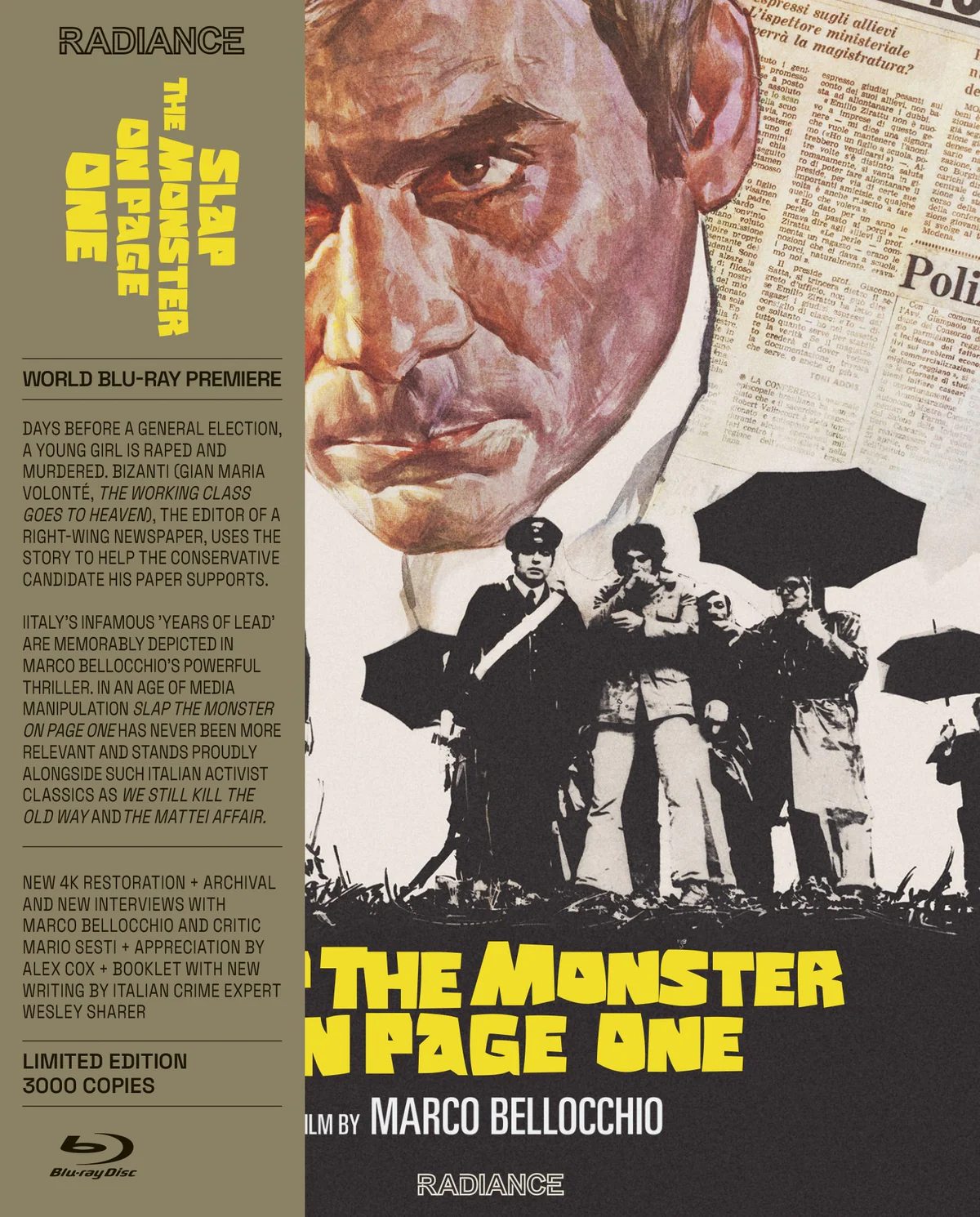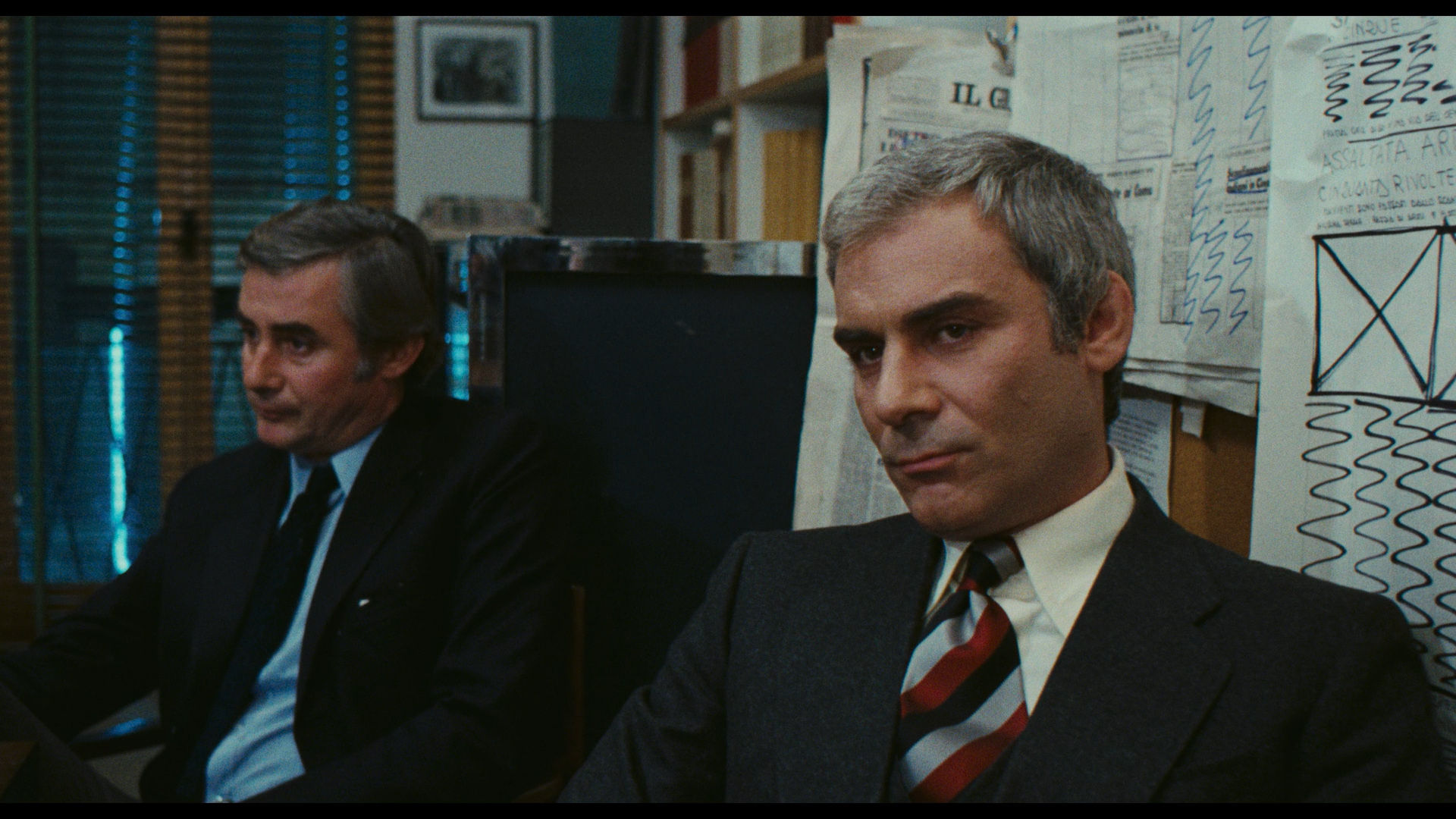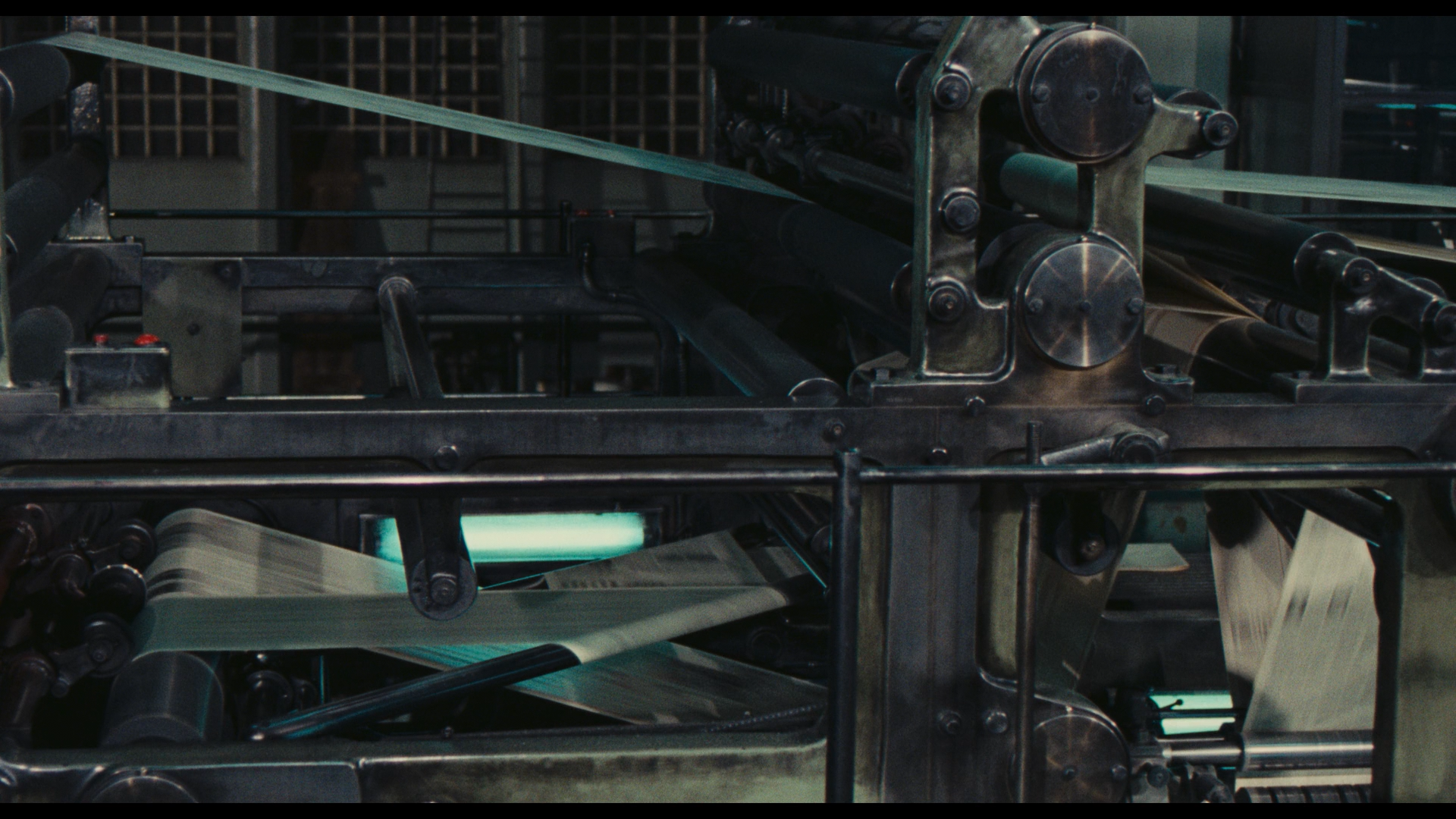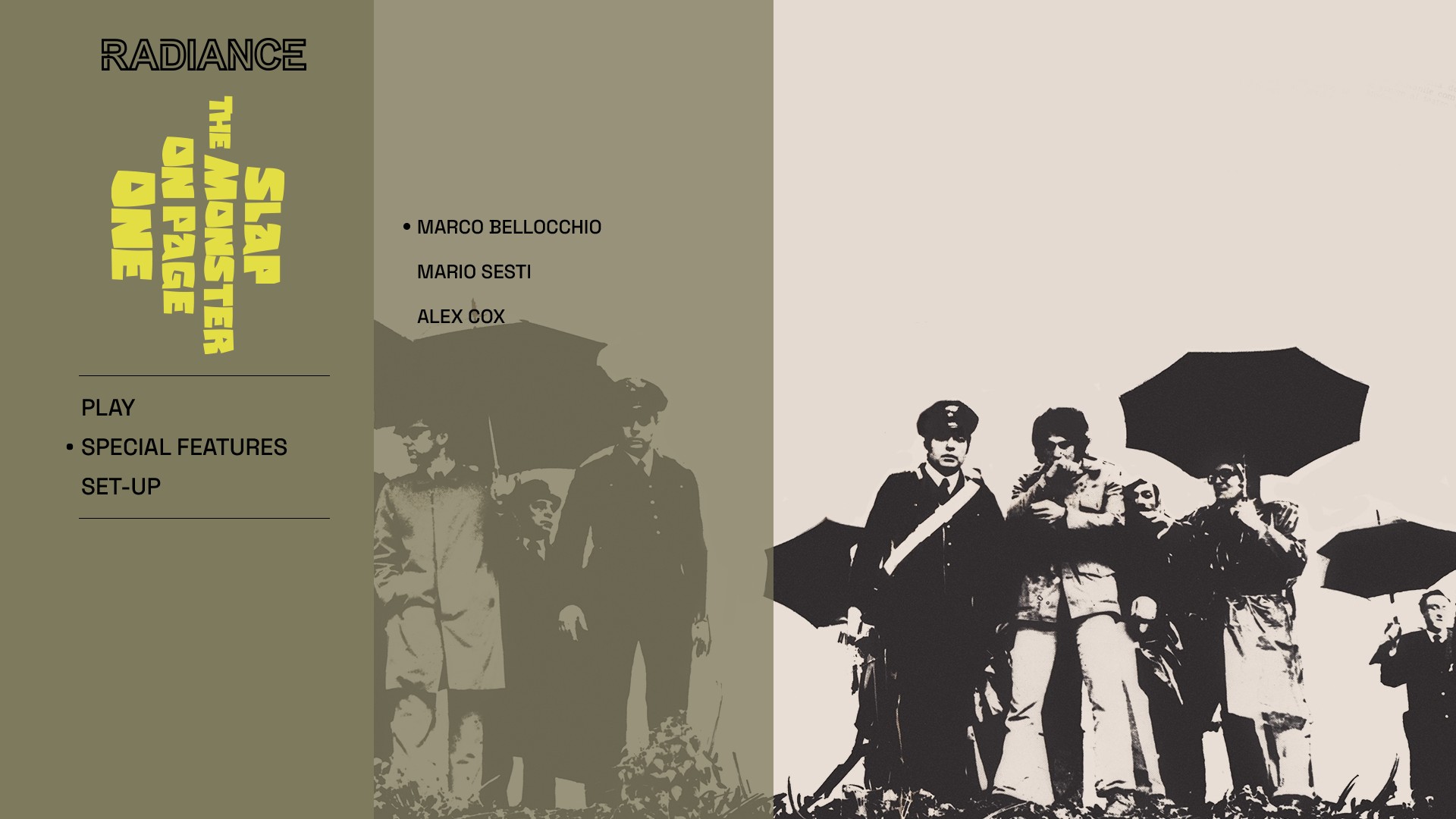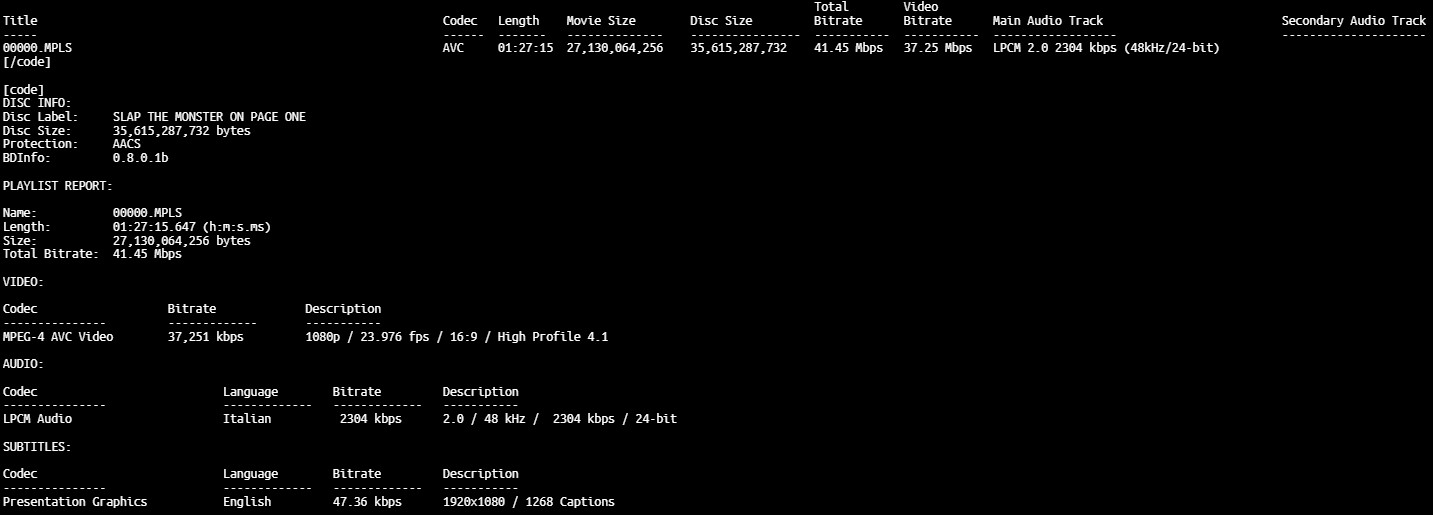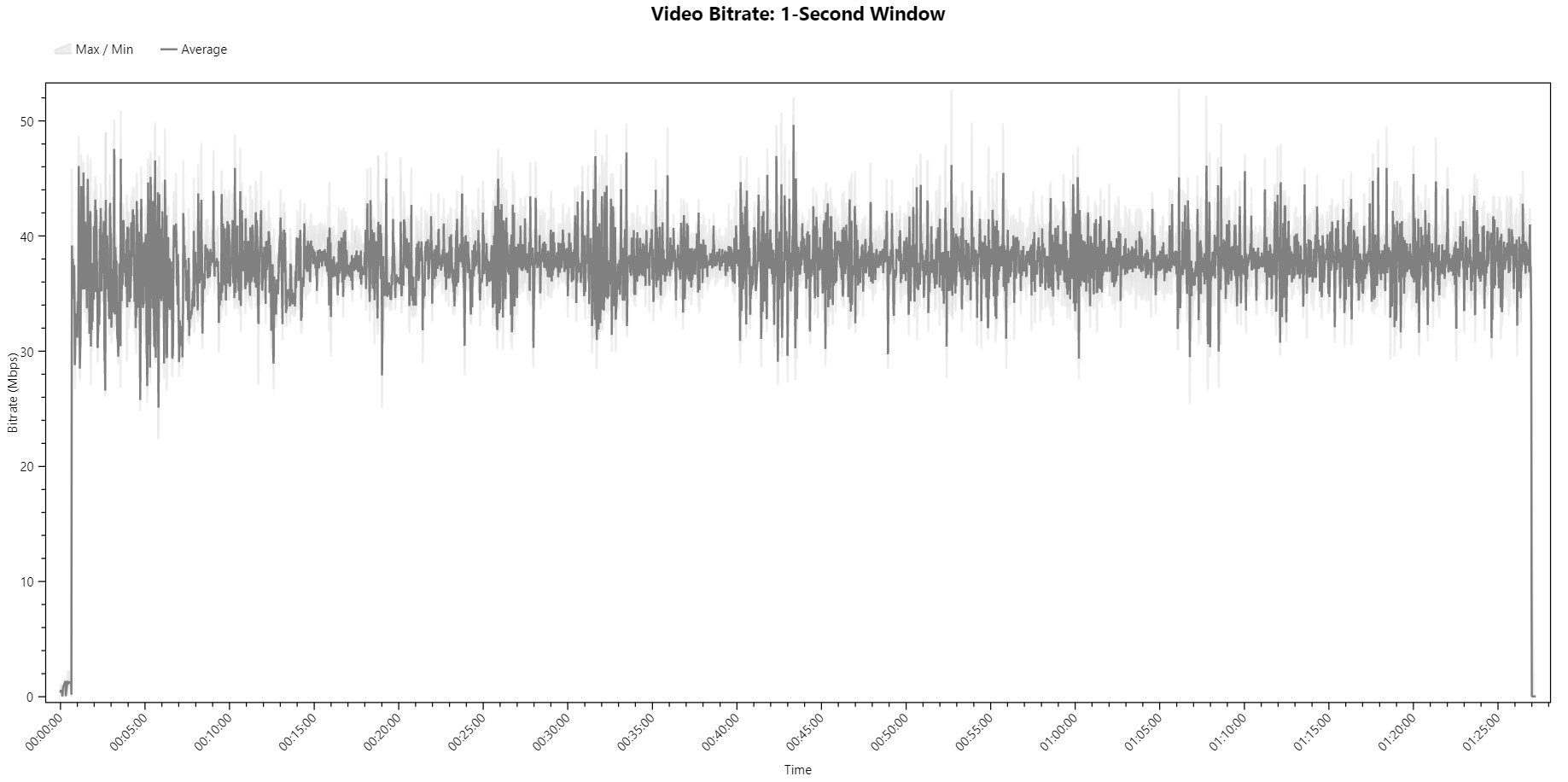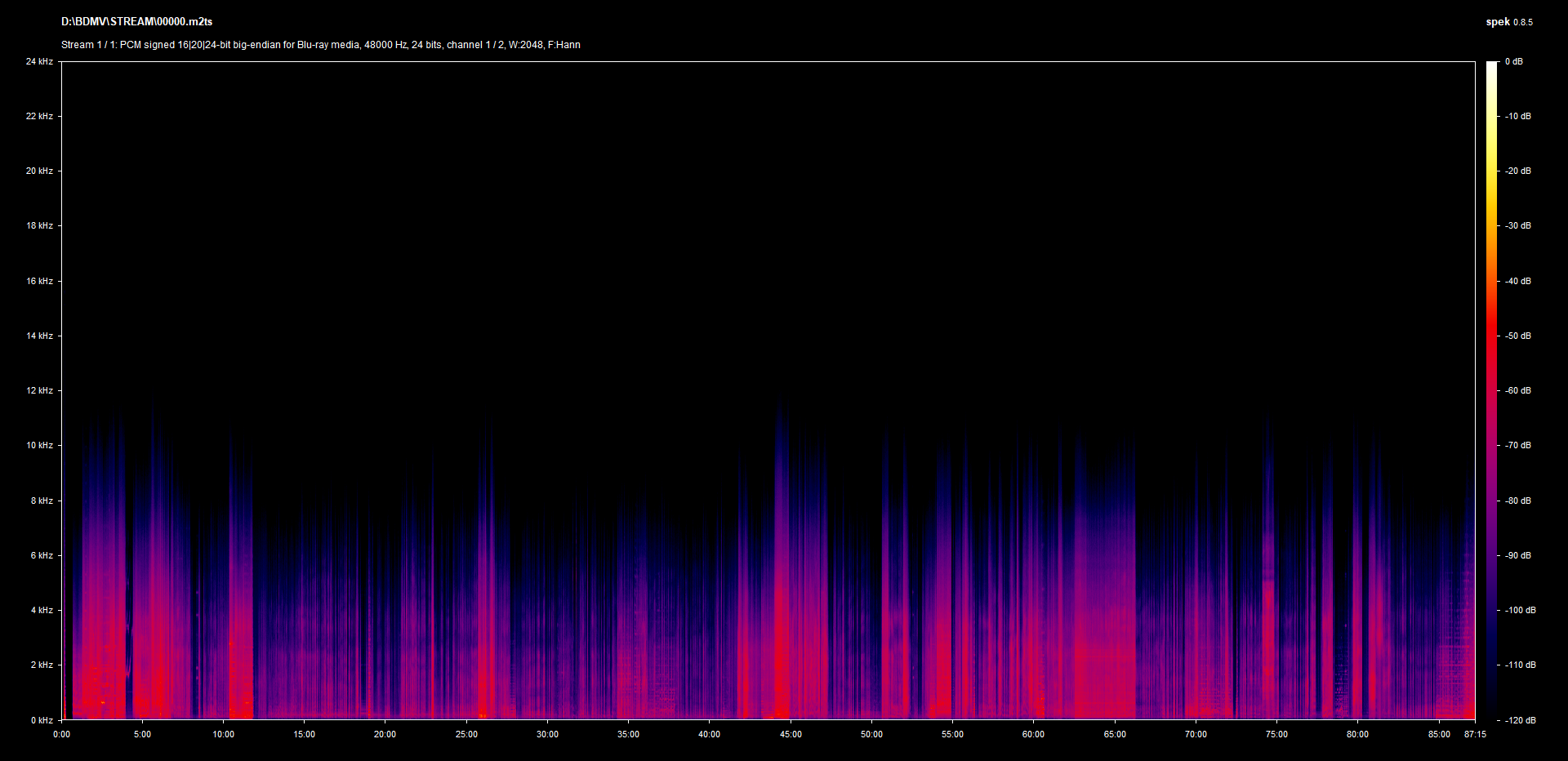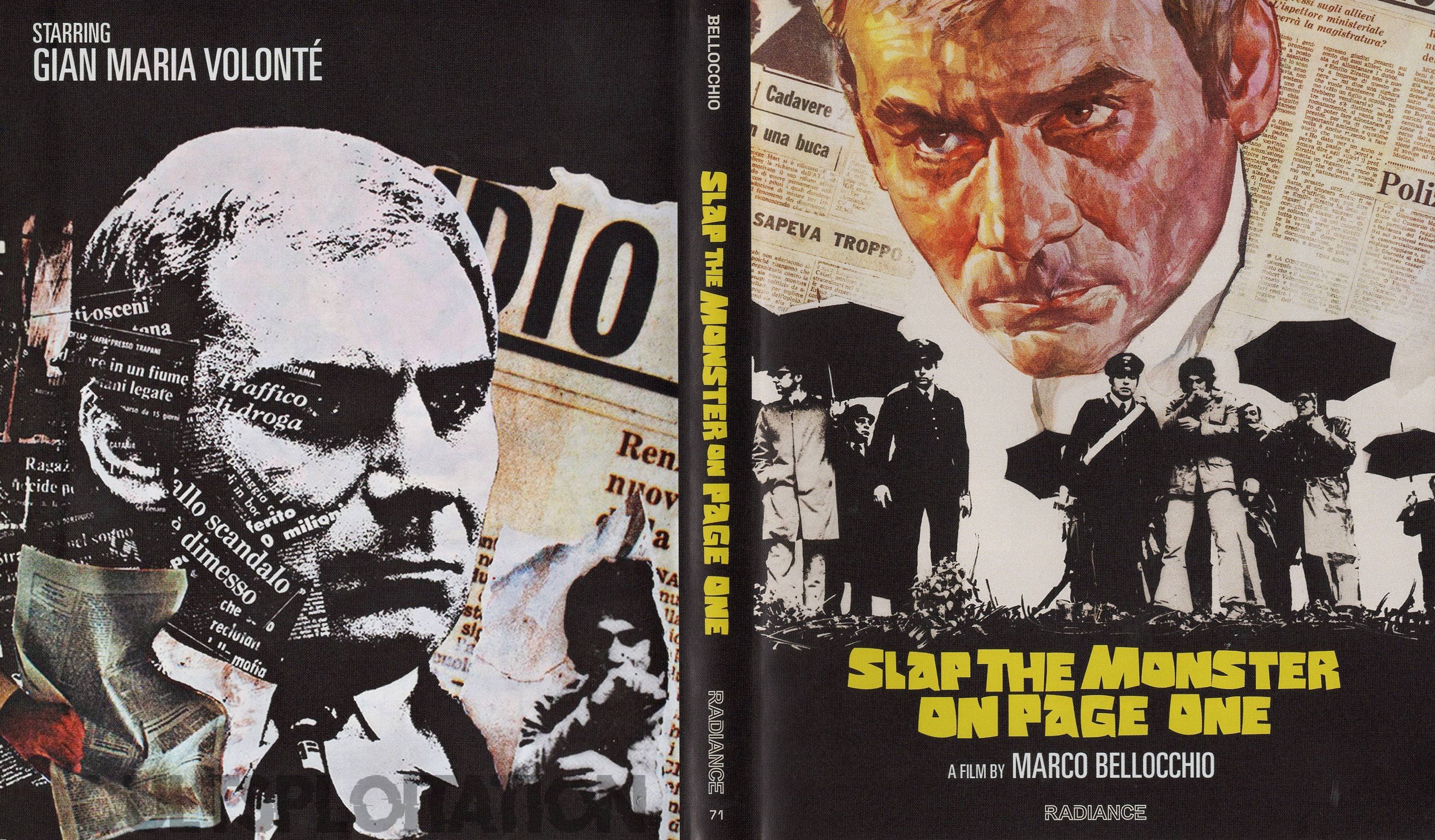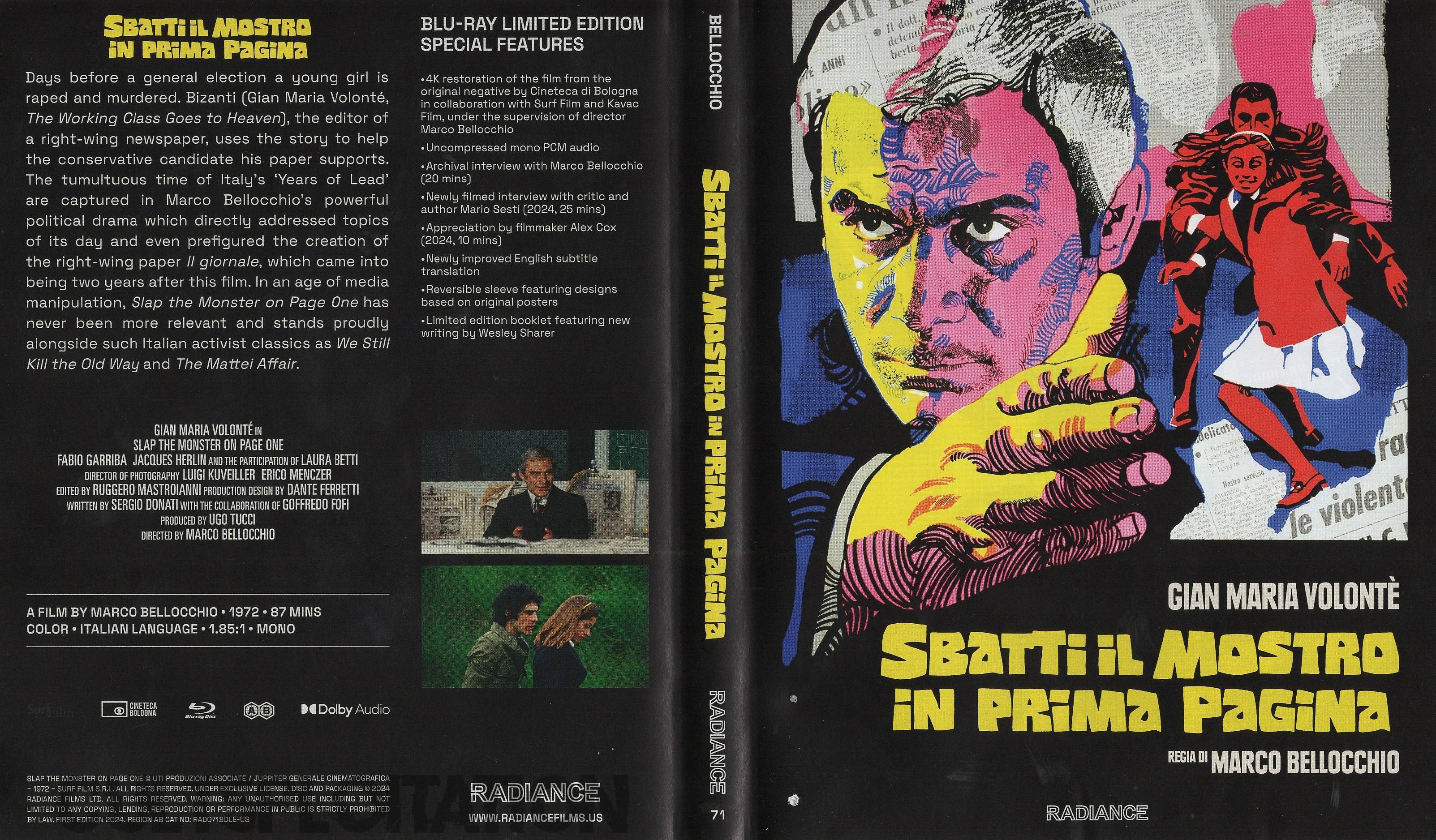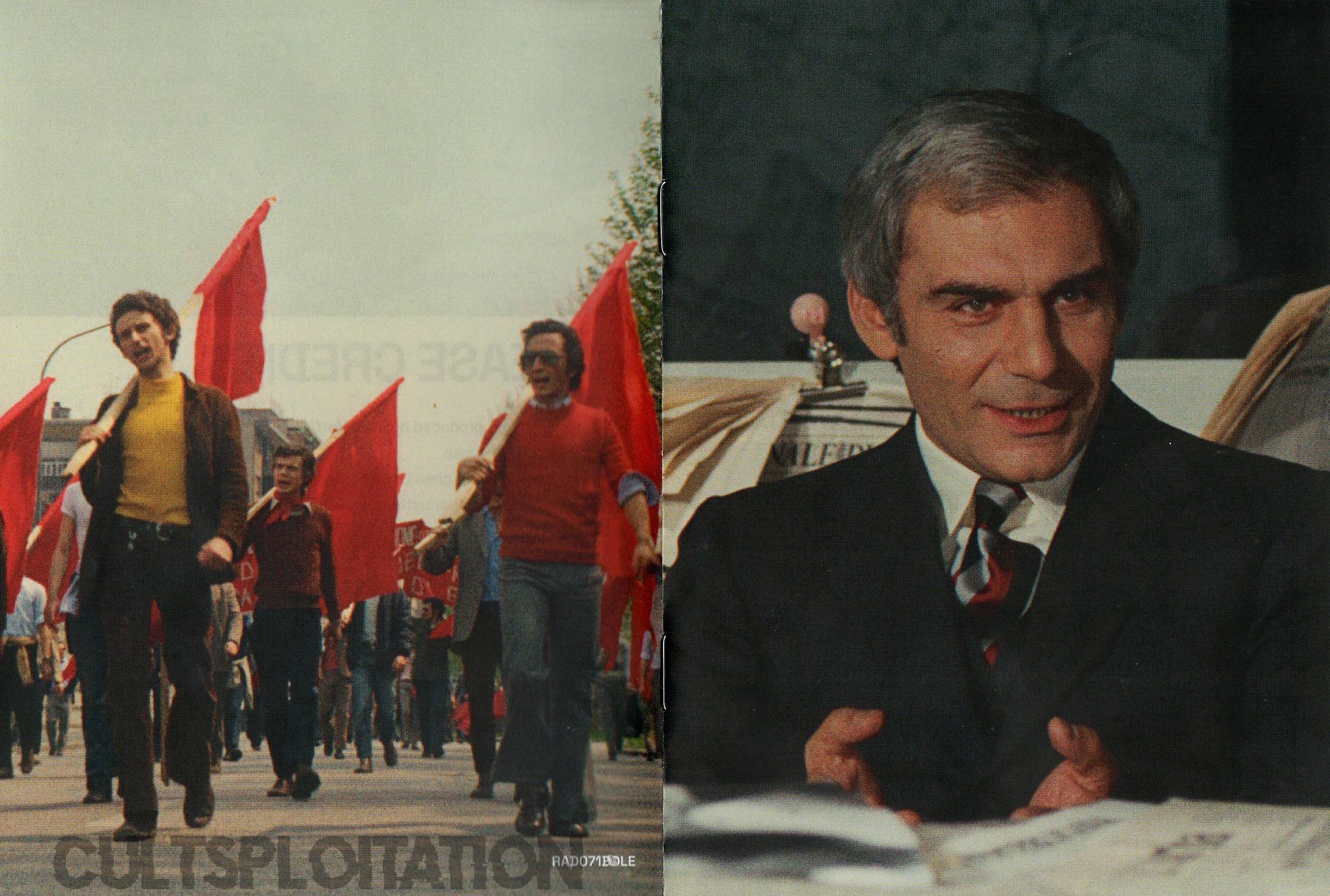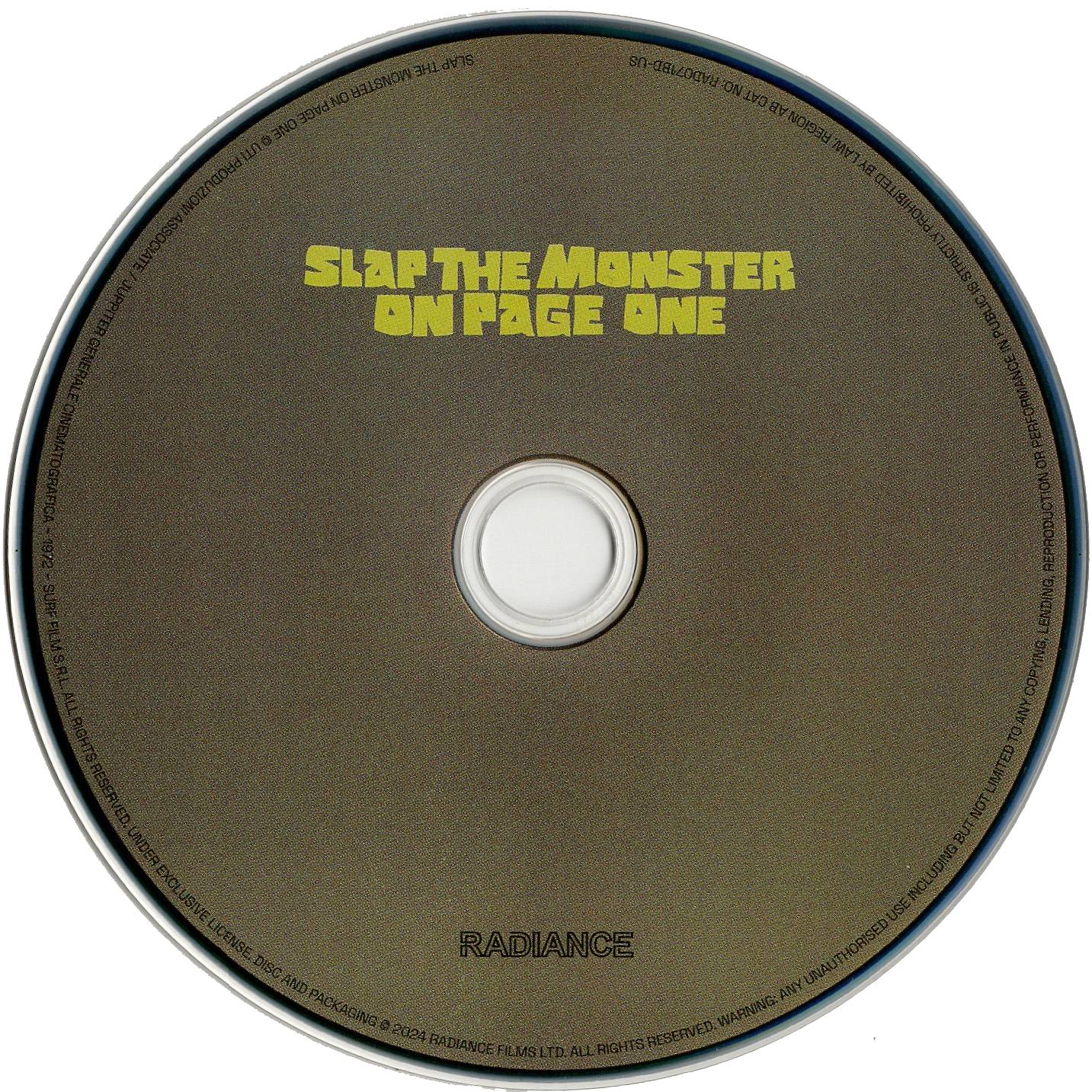
Director Marco Bellochio presents a contemporary view of the Italian Years of Lead in the 1972 film Slap the Monster on Page One, a political thriller about a right-wing newspaper working with an electoral candidate to sway the election in his favor. While the Italian sociopolitical time frame sets up a backdrop for the film, its establishment of a seedy yet notoriously popular press rag and the editor-in-chief who runs it shouldn’t be unfamiliar to the layman viewing the movie without context; in fact, Slap the Monster on Page One has more than a few similarities to the current rise of fascism in America and the footholds it’s gaining in other countries. Here though, Bellochio forms commentary amidst that social upheaval, a dangerous but brave sentiment to be presenting at the time.
The film follows the exploits of the (then fake) newspaper Il Giornale‘s editor-in-chief Bizanti (Gian Maria Volontè), a man who has cemented his paper’s place at the top of Italian press due to their early scoops, particularly thanks to the fact that they’re working closely with the police. Bizanti is also at the beck and call of Montelli (John Steiner), a politician in an upcoming election who is using the press to promote his party’s interests; while the film doesn’t outright name an Italian party, he’s closely aligned with Christian Democracy ideals although he leans a bit more right especially considering the fascist regime of the time. As the film begins, there’s a vicious rape/murder involving a teenage daughter of a prominent professor, and much of the film revolves around how Bizanti and Il Giornale can manipulate the facts of the killing to look bad for the proletariat/left-wing party, swaying the public towards Montelli’s cause and, more specifically, a fascist state under the guise of “law and order.”
While the script from Sergio Donati and Goffredi Fofi initially resembles the makings of a politically-tinged poliziotteschi with its murder investigation (indeed, besides spaghetti westerns, Donati wrote a fair share of cop dramas), Bellochio’s direction shifts away from detective work to dive more into the yellow journalism of main character Bizanti, with Volontè doing an excellent job riling up the audience and raising the dislike-0-meter. The film makes it clear that Bizanti will publish anything that persuades his readers toward a certain direction; various pieces of dialogue show his right-wing leanings and disgust of the proletariat revolters that threaten the status quo of fascism, but even more despicable are the actions he takes to get the story. Slap the Monster on Page One displays a fantastic look into how the press can shift public opinion by conjuring up stories that morph the truth into something more “truth-adjacent”; their main task here is to use a girl’s murder to smear an innocent man, Mario Boni (Corrado Solari), while also manipulating reporter Roveda (Fabio Garriba) to write lies in the process.
Besides its murder investigation and political themes, Slap the Monster on Page One manages to remain interesting simply for its constant forward momentum which often finds its side characters manipulated into behaving a particular way because of Bizanti’s questionable ethics. It’s smartly written and often purposefully frustrating due to its intentionally dislikable point of view. The film’s conclusion is bleak, as well: the real murderer doesn’t face justice, an innocent man will likely go to jail, and Bizanti’s scheming with Montelli will continue. Bellochio gives the audience a chilling ending with pointed symbolism (and this is after the flashback depiction of rape and murder!) – first, with Bizanti attending the girl’s funeral while consistently being unable to follow the religious ceremony’s standing cues; then, a flood of sewage and trash before the credits.
While Bellocchio gives modern viewers a specific setting and context, it’s certainly one that feels aptly prescient in today’s political climate. A compelling story of how the press can be complicit in spreading propaganda and lies while promoting specific agendas, Slap the Monster on Page One presents a riveting narrative that hopefully disgusts viewers, but more importantly makes them think about media’s presence (and proliferation) in everyday life.
Blu-ray
Radiance Films has released Slap the Monster on Page One on Blu-ray with a new 4K scan from the original camera negative that was done by Cineteca di Bologna and supervised by director Marco Bellocchio. The film has a particularly grainy look to it, which can sometimes appear clumpy in darker lighting. However, fine details are often good including skin textures and various background settings and materials. Printed media, including the newsprint, is used quite often to good effect. Bellocchio makes use of stock protest footage at the beginning of the movie which is understandably inconsistent from the rest of the film’s quality. Also of note are some fluctuations with the superimposed television screen late in the film, when Bizanti comments on his wife being a moron because she believes the news she hears and reads without being able to analyze it. Overall, besides a few soft shots and some thicker grain, this new 4K restoration looks quite good and color grading remains consistent throughout though it can push a bit pink-hued at times.
For audio, we get an LPCM 2.0 mono Italian soundtrack. This sounds strong, with consistent dialogue levels and swelling musical score; no real issues to relate here. English subtitles are included and defaulted to On.
For extras, Radiance collects both new and old interviews. The first is an archival interview with director Marco Bellochio, who talks about coming into the film late to replace the previous director and infusing more political leanings into it with his writing partner Fofi. A new 25 minute interview with Italian film critic Mario Sesti who explains the sociopolitical context of 1970s Italy and then digs into the themes of the film, Bellochio’s rejection of it, and its place next to American journalism films. Filmmaker Alex Cox also provides a new interview that looks at two scenes within the movie; one is when Bizanti is berating the young reporter about how to spin a story’s headline, and the other is when Bizanti is confronted by the same reporter who is enraged about being used to influence politics.
A booklet featuring new writing from Wesley Sharer rounds out the package; it’s an excellent essay conveying more information about the Italian Years of Lead era and how Slap the Monster on Page One predates today’s social media. There’s also reversible cover artwork.
Extra Features
- NEW 4K restoration of the film from the original negative by Cineteca di Bologna in collaboration with Surf Film and Kavac Film, under the supervision of director Marco Bellocchio
- Uncompressed mono PCM audio
- Archival interview with Marco Bellocchio (1080p; 19:39)
- NEW filmed interview with critic and author Mario Sesti (1080p; 24:47)
- NEW Appreciation by filmmaker Alex Cox (1080p; 9:53)
- NEW improved English subtitle translation
- NEW Reversible sleeve featuring designs based on original posters
- NEW Limited edition booklet featuring writing by Wesley Sharer
- Limited edition of 3000 copies, presented in full-height Scanavo packaging with removable OBI strip leaving packaging free of certificates and markings
Verdict
Slap the Monster on Page One is a fine piece of filmmaking about Italian press, fascism, and counterculture. Here it gets a good 4K transfer and a number of enlightening features providing more context about this time period and appreciation of Bellochio’s body of work.

